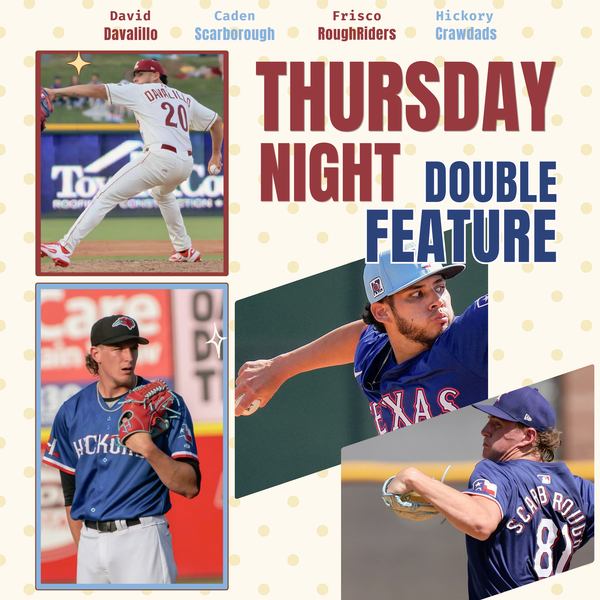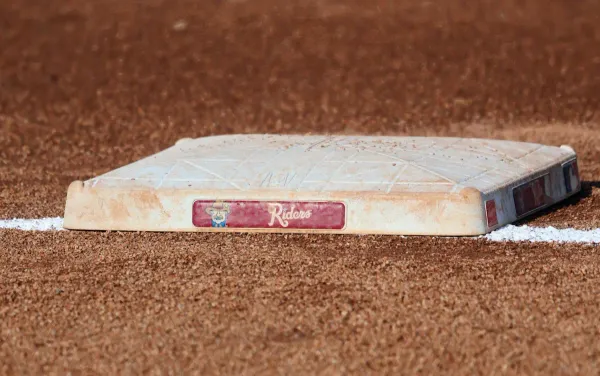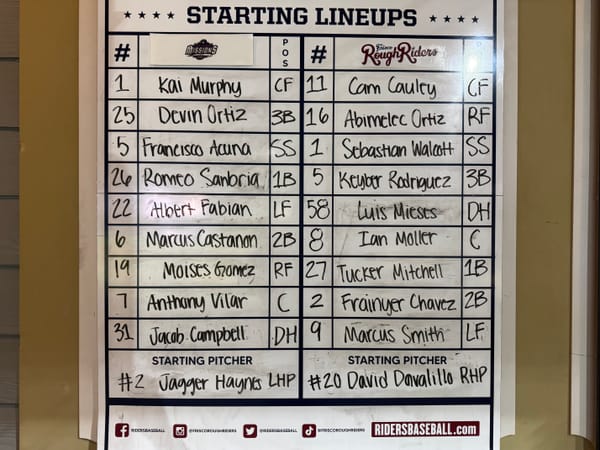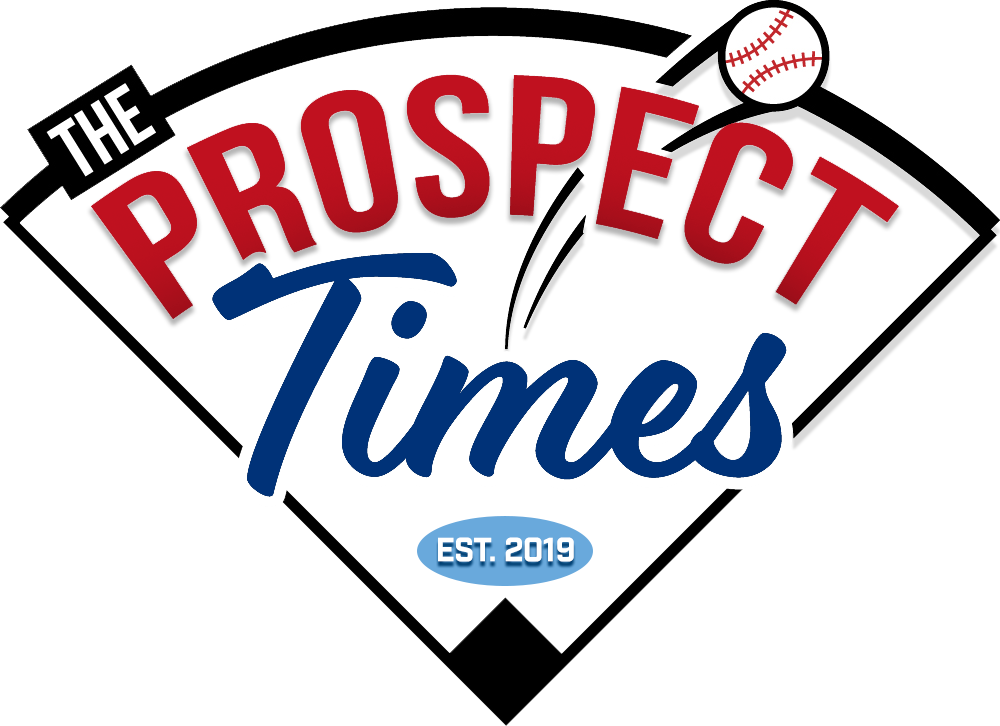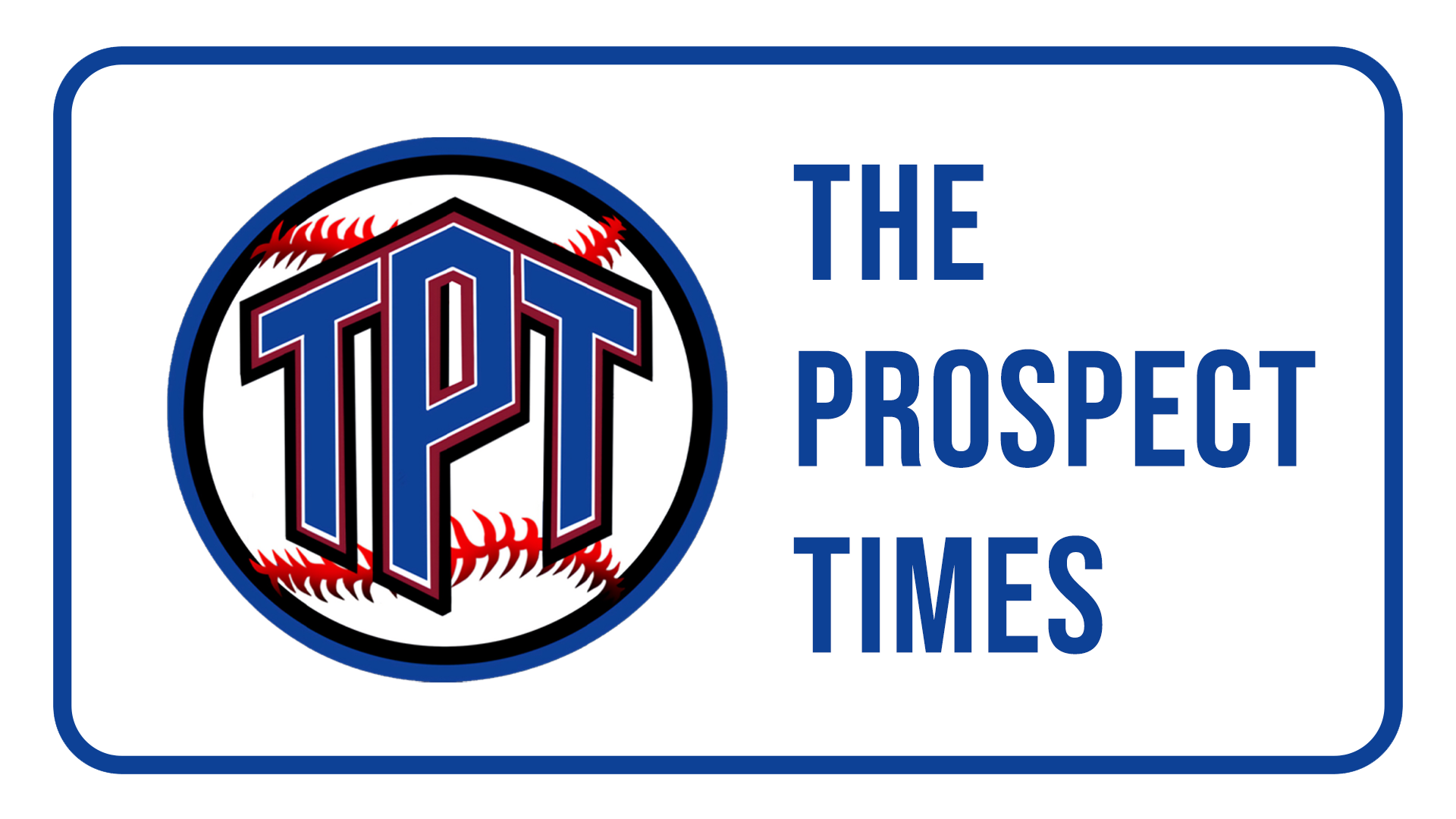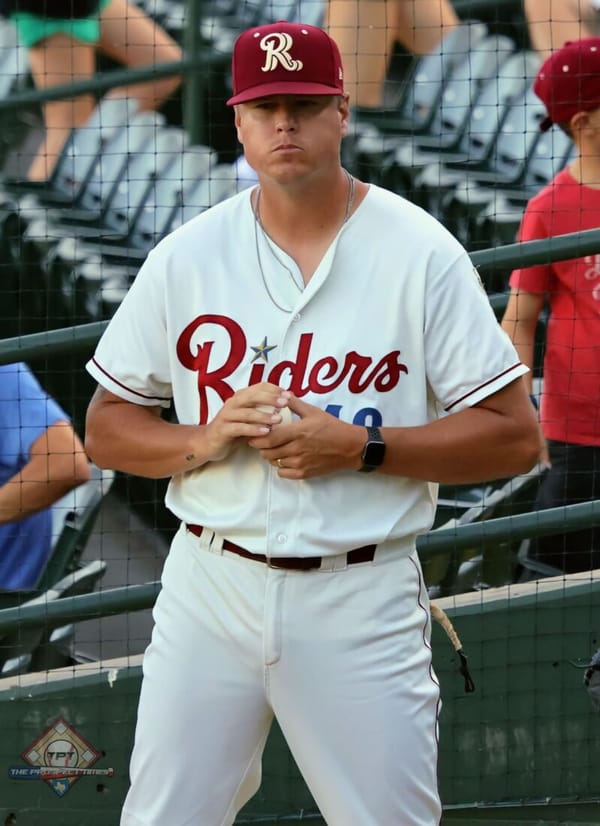
Frisco RoughRiders pitching coach Jonathan Goebel finished his first season (2023) with the team and second season in the Texas Rangers Organization in September. Under his leadership, the RoughRiders' pitching staff finished with a 4.98 earned run average. They were 2nd in the Texas League in strikeouts with 1,335 but issued the 4th most walks with 606. Besides the number of walks issued, there were quite a few individual successes.
Before embarking on his coaching journey, Goebel excelled as a right-handed pitcher at Edwardsville (Ill.) High School, amassing an impressive 11-1 record and a remarkable 0.69 ERA during his senior year. Transitioning to collegiate play, he initially pitched at St. Louis Community College - Forest Park before spending two seasons (2007-08) at Bradley University in Illinois, where he earned recognition with an Honorable Mention for the Missouri Valley Conference Scholar-Athlete award in 2007.
His coaching career started in 2009 as a volunteer assistant for the Parkland Cobras, marking his entry into the field. He became the pitching coach in 2014, leading his pitching staff to lead the NJCAA in strikeouts in both 2017 and 2018. Earning the head coach position in the fall of 2018, he directed the team to an impressive 82-39 win-loss record across his three-season tenure.
Now, you can know the impressive track record that helped convince the Texas Rangers to hire him as the Hickory Crawdads pitching coach in 2022 and lead to where we are today.
Interview with the Frisco RoughRiders pitching coach, Jonathan Goebel.
What inspired you to pursue a coaching career, with a specific focus on pitching development?
Played my whole life growing up. Have had obsession with baseball as long as I can remember. Dream was to play in the big leagues one day, like a lot of kids. Knew when I was done playing I could never leave the game. Expect to be a baseball lifer. I was a pitcher growing up. Never had much success as a position player. Pitching is what I was exposed to most as a player.
How do you address the mental challenges pitchers face to maintain their focus and confidence on the mound?
Every player is different in that regard. You have to know each guy and what makes them tick. The season is very long too. You will can’t address a player the same way mentally all season long. There are times you have to push and times you need to lay off. Just understanding each player is a separate case and having feel for where they are mentally and how difficult the game can be is most important.
In your experience, what are the primary hurdles young pitchers commonly encounter, and how do you go about mitigating them?
Mental game is probably the biggest hurdle. Believing you’re good enough is tough to do in a game with so much failure built in. Obviously everyone has a base line of talent or they wouldn’t be in pro ball. Getting the most out of the talent is what it’s all about. We are lucky to have all resources imaginable to help players achieve this. A players support system plays a big role in their development.
Can you share success stories of pitchers who have made significant strides under your tutelage?
This was my second season with the organization. I spent 2022 in Hickory and really liked the way Mason Englert and TK Roby developed throughout that season. This season in Frisco had a lot of highlights throughout but I thought the bullpen really stood out. Guys like Antoine Kelly, Grant Wolfram, Alex Speas, Marc Church, Justin Slaten, Aidan Anderson, and others really out together impressive seasons.
What advice do you have for aspiring pitchers seeking to reach the professional level?
Go to minor league games and see what it looks like. It’s not easy. It’s not for everyone. The first thing a player needs is clarity as to what it takes. They need to understand what the pro game is looking for.
Are there particular mentors or role models who have influenced your coaching style and personal growth?
Even in the short 2 years I have been with the Rangers I have been influenced by countless people. People from all different departments, not just pitching. It’s important to be as adaptable as possible. Players are a huge influence too. Each player leaves an impression on you and teaches you something if you listen.
Could you walk us through a typical day in your role as a pitching coach for the Frisco RoughRiders?
Usually get the field around 11 or 12 for a 7pm game. Start out the day going over player data from the night before. See what stood out. Then I’ll work on the advanced report on that nights lineup for the starting pitcher. Usually around 2:00 we will prepare for the bullpen side for that day. Get the tech set up and bullpen plan laid out and throw that side with the starting pitcher 2 days ahead of his start. After that pitchers will stretch around 4:00 to prepare for their throwing program. Head inside at 5:00 and have advanced meeting with starting pitcher and catcher going over that nights lineup and the starting pitchers goals and objectives. Then have a review meeting with the starting pitcher from the night before and go over video. At that point I will get with manager to go over who’s available to pitch out of the bullpen that night and head out to get the starting pitcher ready to go. After the game I’ll head in and complete post game reports on each pitcher that threw that night.
Beyond baseball, what other interests or hobbies do you have?
Love all sports. Big into English Premier League Soccer, NFL, University of Illinois basketball, and spending time with my family.
From your perspective, what factors do you believe have contributed to the increase in Tommy John injuries in baseball?
Too many to cover really. Kids are playing a lot at a young age and pushing themselves to their limits very early on in their training. Combination of lack of rest or improper on-ramping to competition plays a big role in that.
Turning to a lighter note, the perennial debate: Whataburger or In-N-Out burgers?
Not really a fan of either to be honest. I’m from Illinois, we have a place called Portillio’s that’s much better than both of them.
What is a successful baseball season in your eyes?
At the minor league level it’s all about the players. I try to look at every pitcher and ask if he’s a better pitcher now than what he was at the start of the season. That is not always defined by his numbers either. You can have similar or possibly even worse numbers than a previous season and be in a much better positioned in your career to move forward.
To wrap up, could you share an intriguing fact about yourself that many may not be aware of?
Nothing intriguing about me. Just a simple guy that loves baseball and the players that play it. I’ve got a chance to be around some people that have been in this game for 40 years and are so well respected as a baseball man. I want to be there one day.
Share this article
Written by

Heath Criswell
Join the conversation

